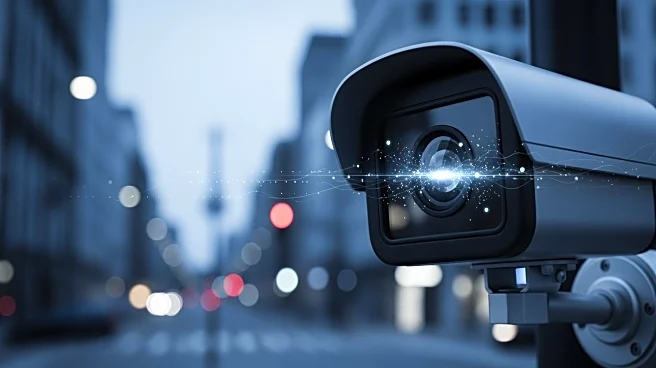What's Happening?
An Iranian official has accused Israel and the United States of using traffic cameras to spy on Tehran. The claim was made by Jalali, who further alleged that a cyberattack on Khuzestan Steel in 2022 was initiated after hackers accessed the camera network,
allowing them to infiltrate the plant's core infrastructure. This accusation comes amid heightened tensions between Iran and Western nations, particularly concerning Iran's nuclear activities and regional security dynamics. The use of surveillance technology for espionage purposes is a contentious issue, with Iran asserting that such actions undermine its sovereignty and security.
Why It's Important?
The allegations of espionage through traffic cameras highlight the complex and often covert nature of international relations and intelligence operations. If true, these actions could exacerbate tensions between Iran and Western nations, particularly Israel and the United States, potentially impacting diplomatic relations and regional stability. The use of cyber and surveillance technologies for intelligence gathering is a growing concern globally, raising questions about privacy, security, and the ethical implications of such practices. For Iran, these accusations may serve to justify its defensive posture and actions in the face of perceived external threats.
What's Next?
The Iranian government's response to these allegations could involve increased scrutiny and regulation of surveillance technologies within its borders. Additionally, Iran may seek to bolster its cybersecurity measures to prevent future breaches and protect critical infrastructure. On the international front, these claims could lead to diplomatic discussions or confrontations, as involved parties may seek to address or refute the accusations. The situation may also prompt broader debates on the use of surveillance technology in international espionage and the need for regulatory frameworks to govern such practices.
Beyond the Headlines
The use of traffic cameras for espionage purposes underscores the evolving nature of intelligence operations in the digital age. As technology advances, the methods and tools used for surveillance and data collection become more sophisticated, raising ethical and legal questions about their use. This development may prompt discussions on international norms and agreements regarding surveillance and cyber operations, as countries navigate the balance between security and privacy. The implications of such practices extend beyond immediate geopolitical tensions, potentially influencing global standards and policies on technology and intelligence.















